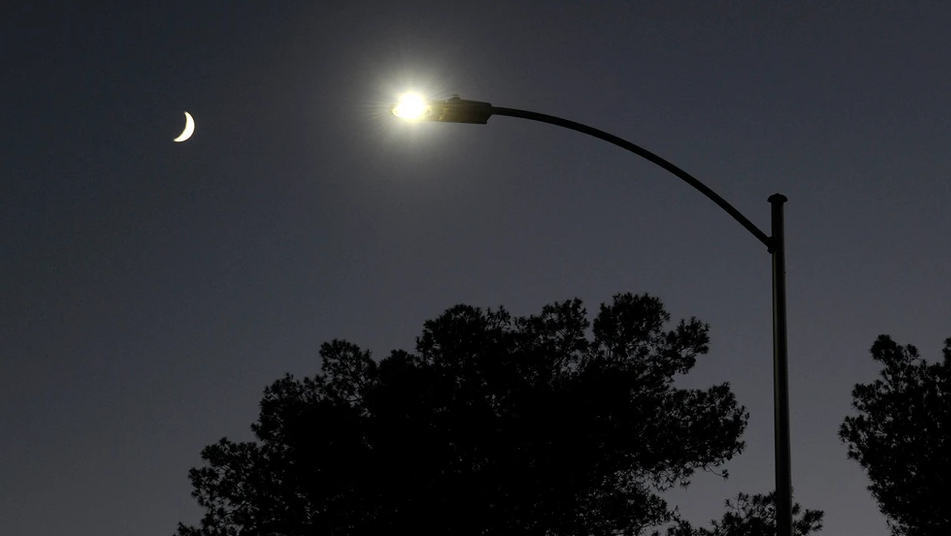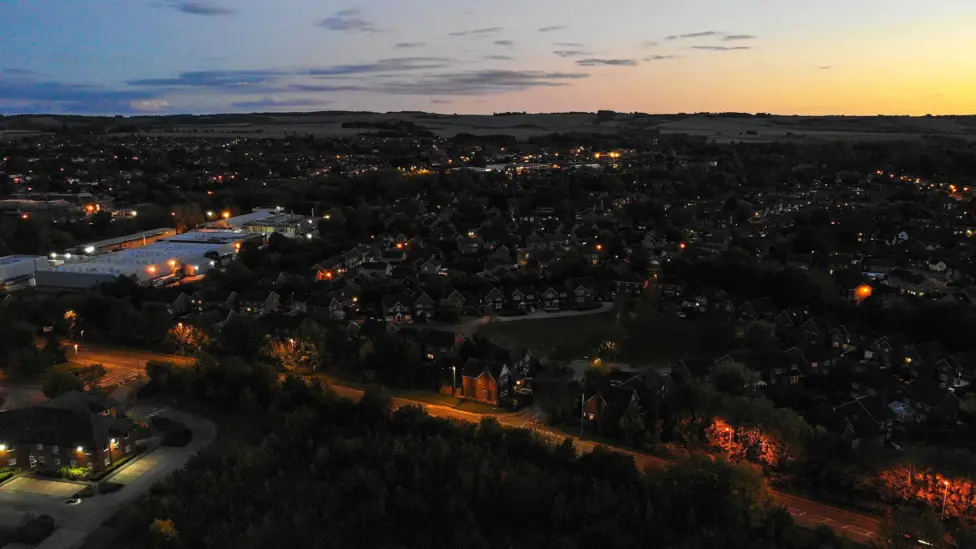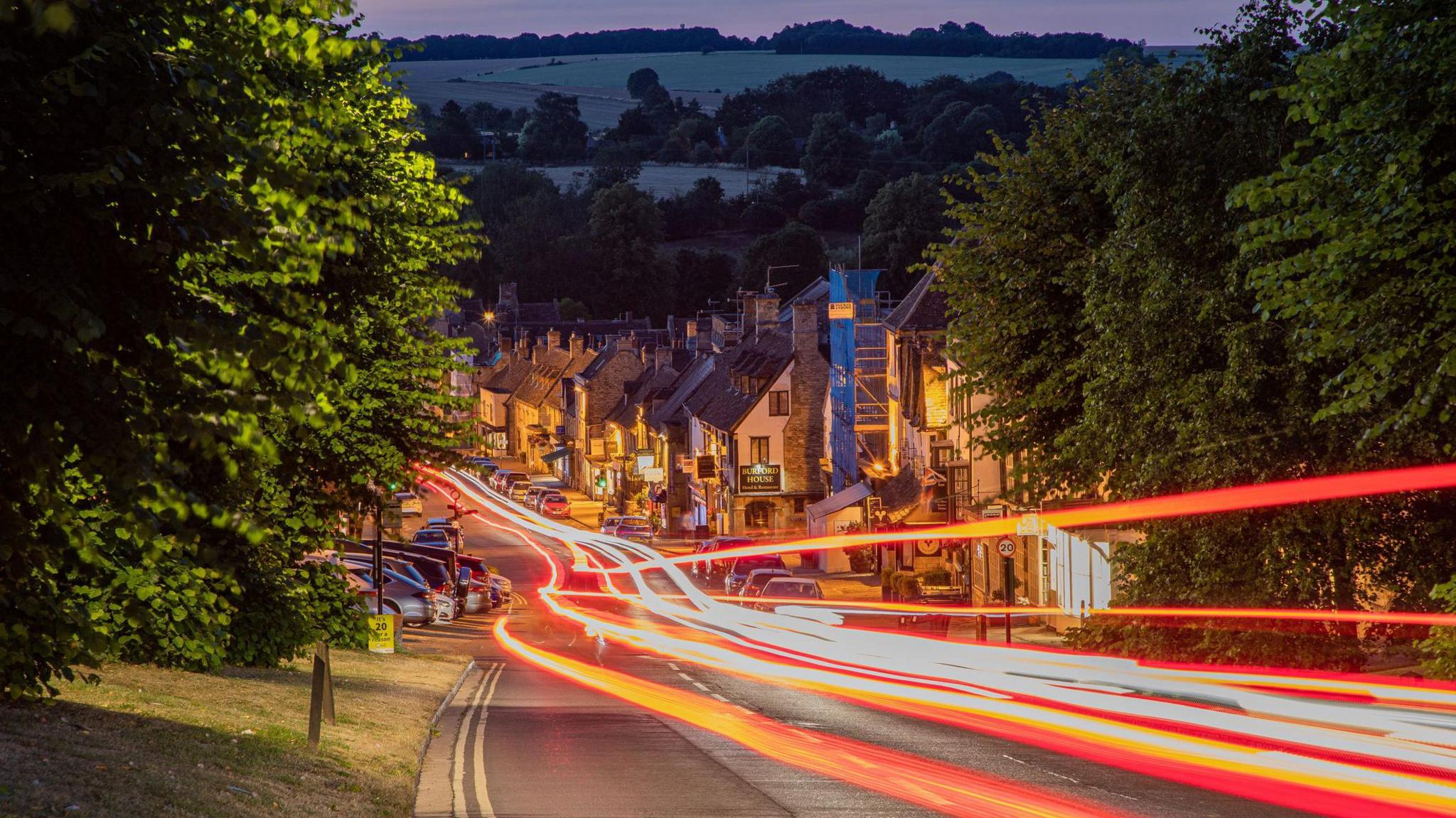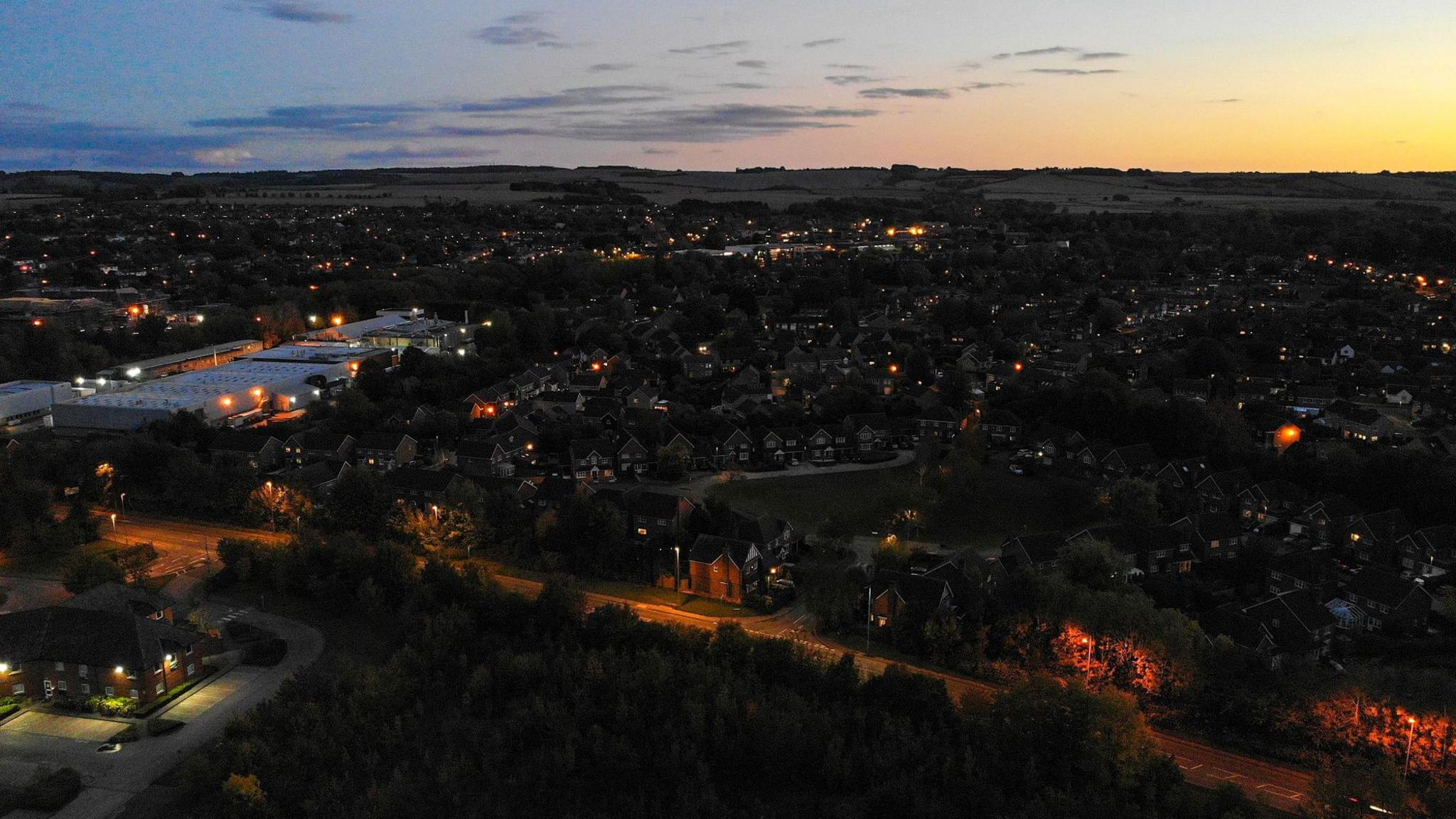Street lights plan might not be for whole county

Thousands of people signed petitions opposing the switch off plan before Wednesday's announcement
- Published
A plan to turn off street lights across Oxfordshire could be decided “settlement by settlement” rather than using a blanket policy for the county.
The county council proposed most of its 60,000 lights operated only between dusk and 23:00 and dawn and 06:30 in a plan that would have saved £400,000 a year.
A framework was due to be signed off on Thursday, but the decision was postponed on Wednesday after thousands of people signed petitions opposing it.
The council’s deputy leader Pete Sudbury said communities’ needs would be considered and said discussions around potential cost savings were a “red herring”.
“Having lights on all the time is not great for human health. It’s much better if it’s really dark when you’re asleep and it’s really bad for wildlife, particularly insects," he told BBC Radio Oxford.
“We need to make sure that the lights are off when people aren’t around. And that, it seems to me, needs to be done almost settlement by settlement.
“About a third of the letters I’ve had or emails I’ve had have been in favour of turning lights out, with two-thirds against... It needs to be done well.”

As part of the plan, most lights in Wantage and wider Oxfordshire could be turned off overnight
Under the plans outlined by the council, lights which illuminate alleyways and paths away from roads, subways and where they are used to show road furniture like speed bumps would stay on overnight.
Thames Valley Police and Crime Commissioner Matthew Barber said last week that he worried about the plan.
On Wednesday he said a petition he set up to oppose it had been signed 1,000 times.
Dr Sudbury said the council would need to revisit work done with police.
He said: "Our officers did work with the police and we thought we had agreement on how it would work and so we need to go back and work with them.
“We also need to work with women’s groups and groups that are concerned about crime and make sure that it works.
“Every single community may have very different times that things work at. It depends on when the last bus is or when the pub closes, that kind of thing.”
Get in touch
Do you have a story BBC Oxfordshire should cover?
You can follow BBC Oxfordshire on Facebook, external, X (Twitter), external, or Instagram, external.
- Published13 November 2024

- Published11 November 2024
